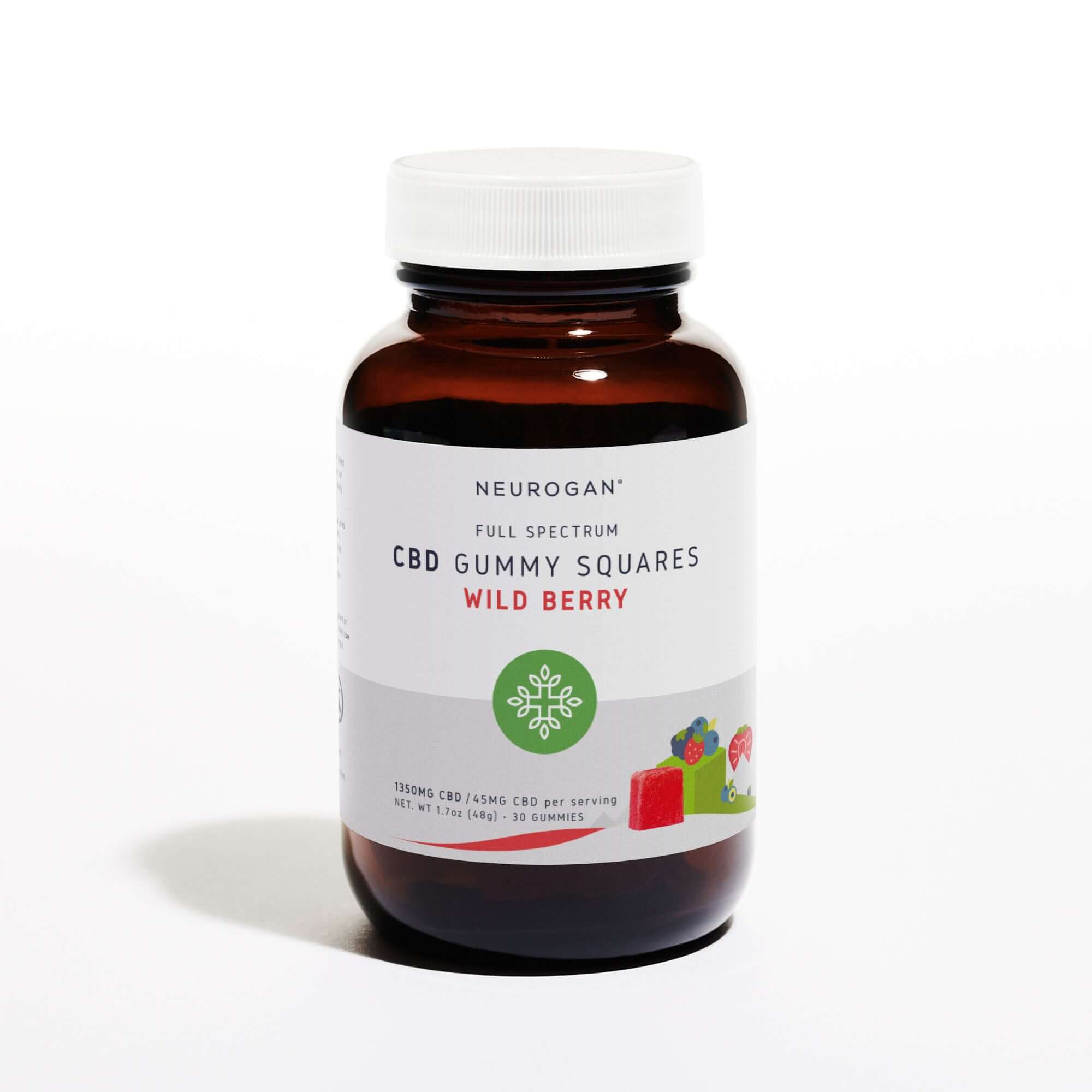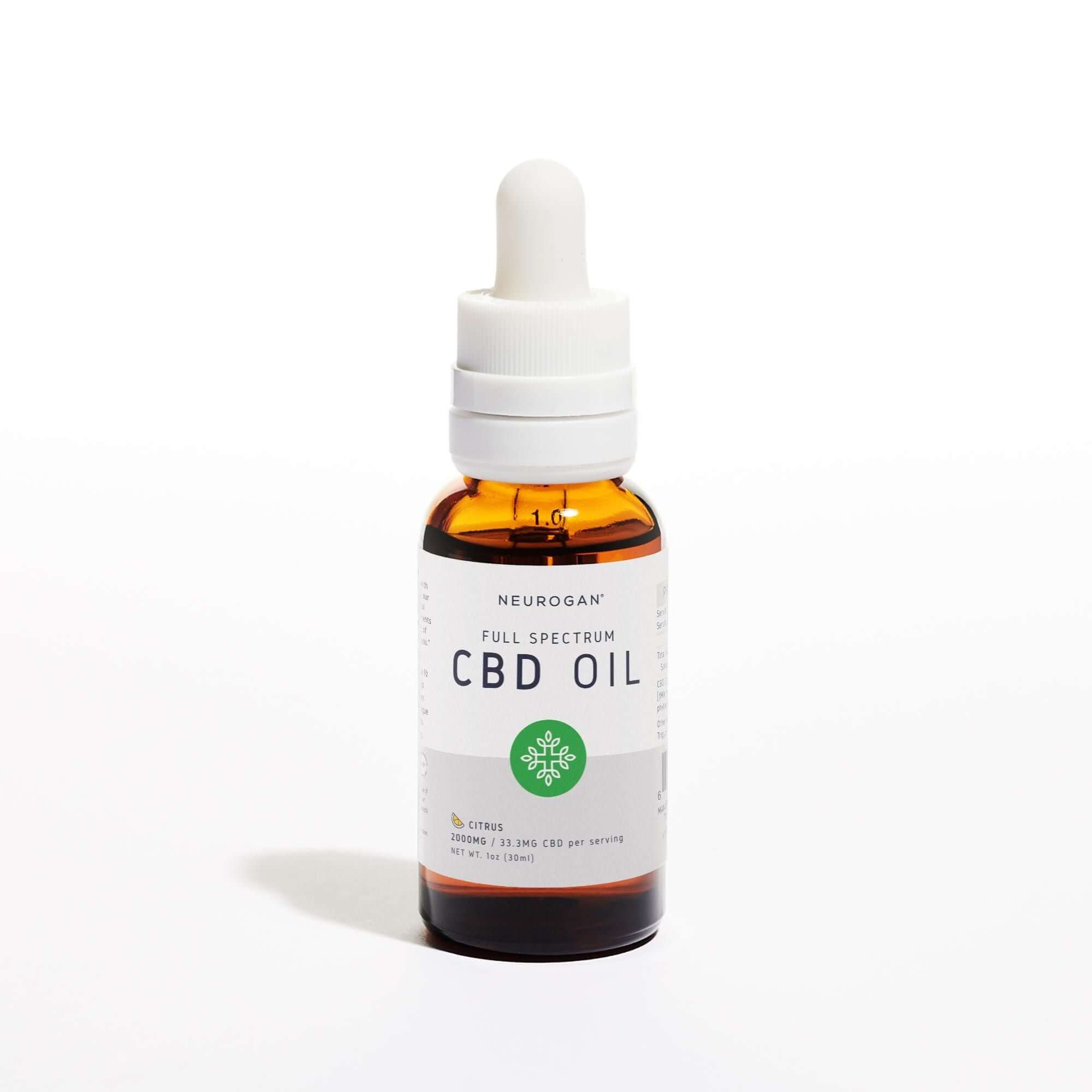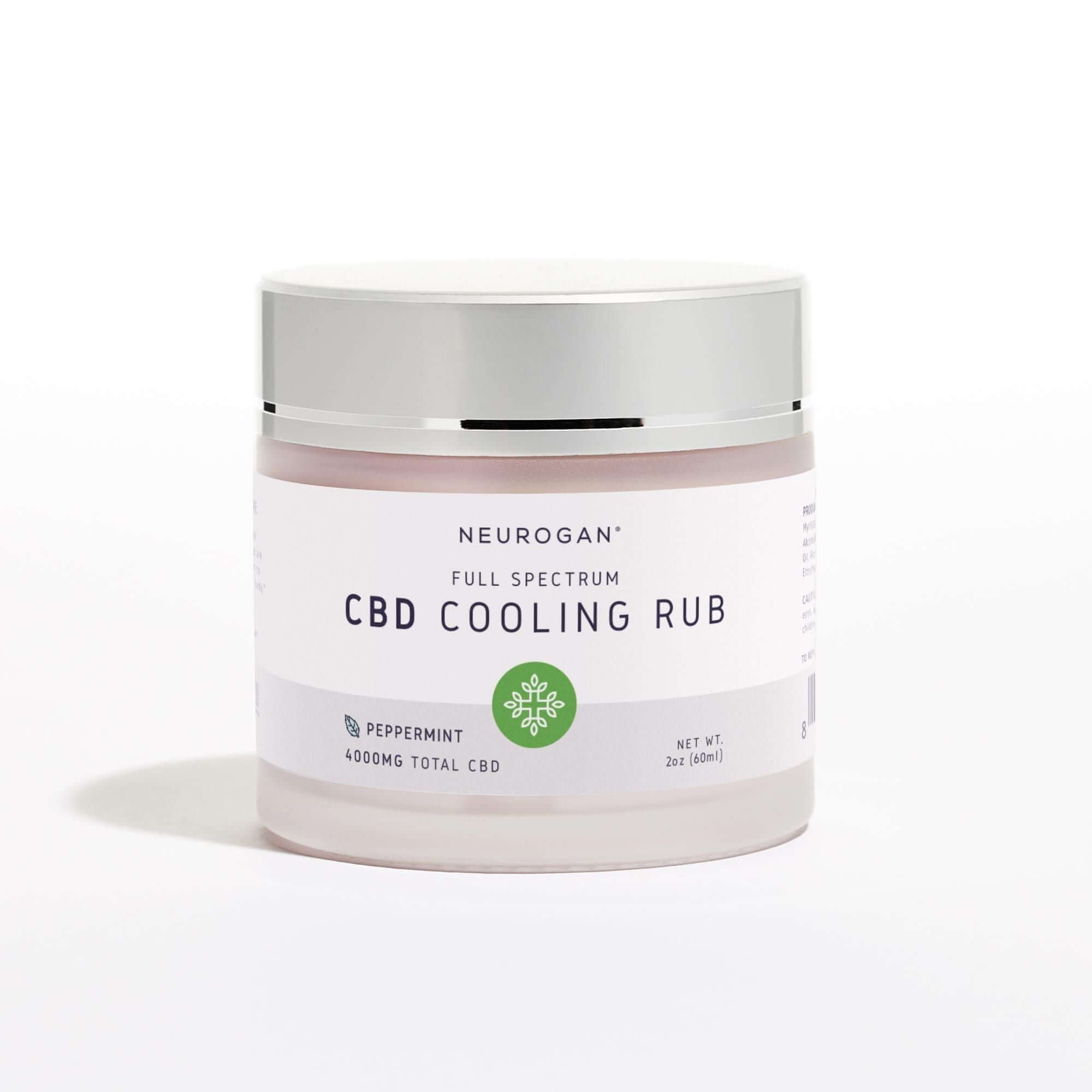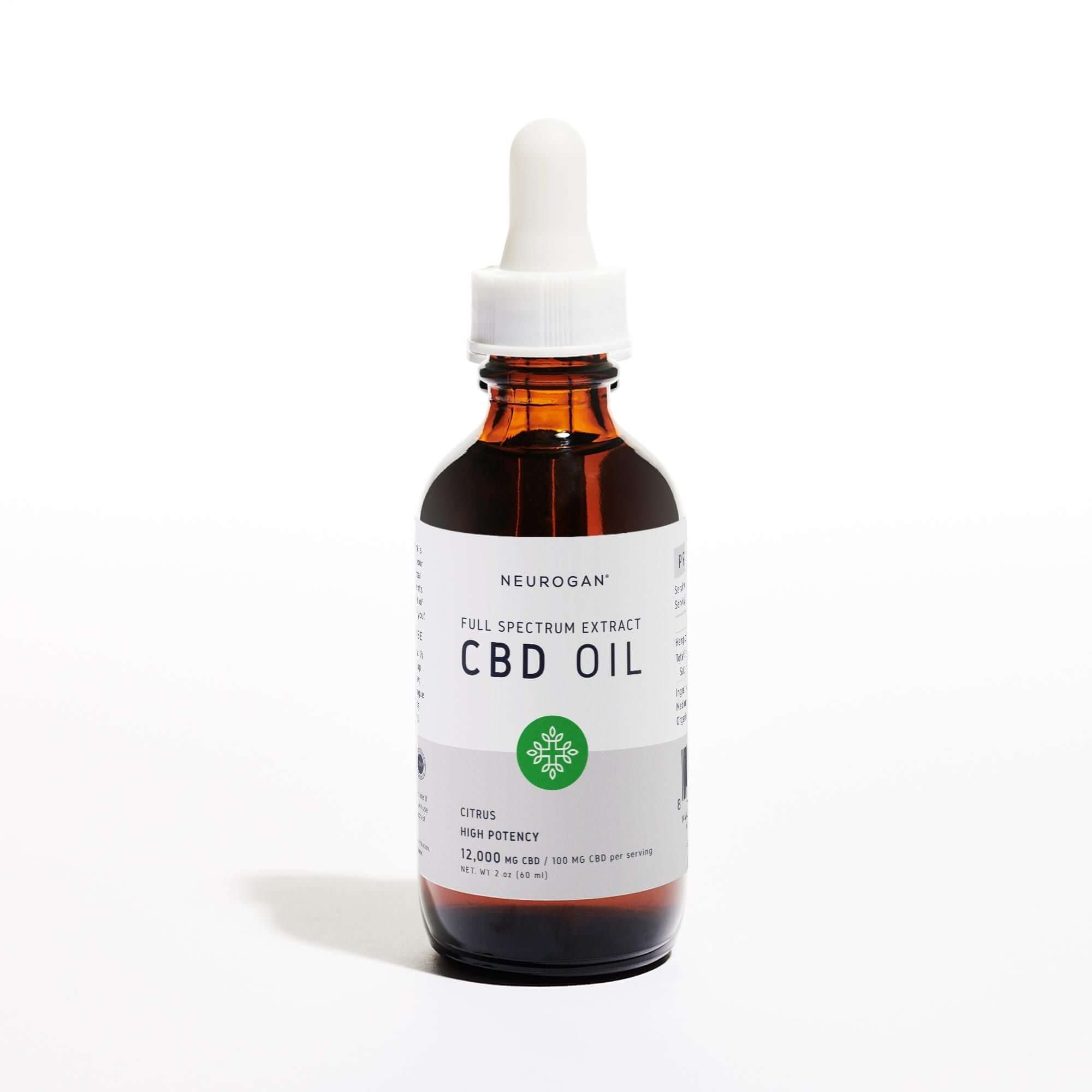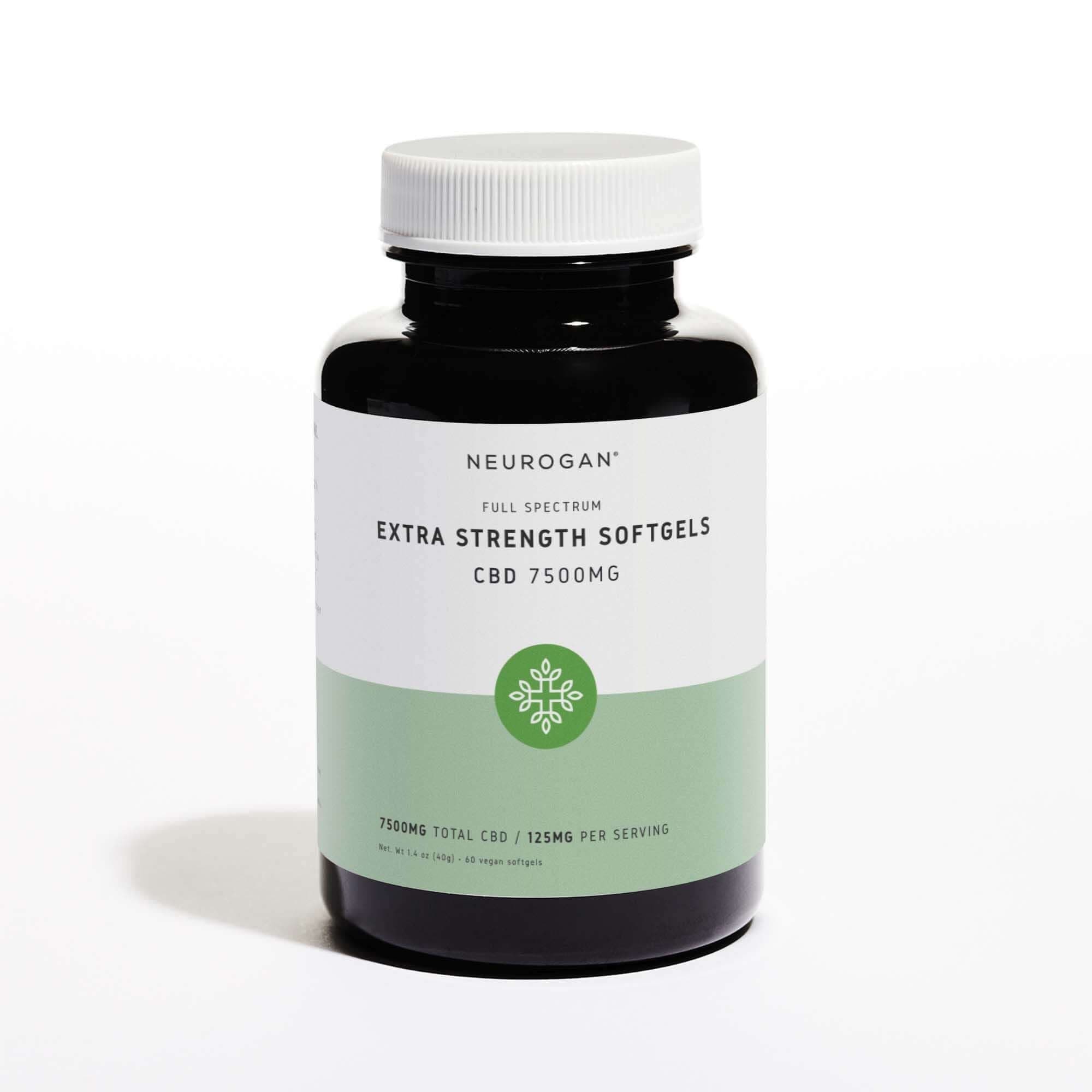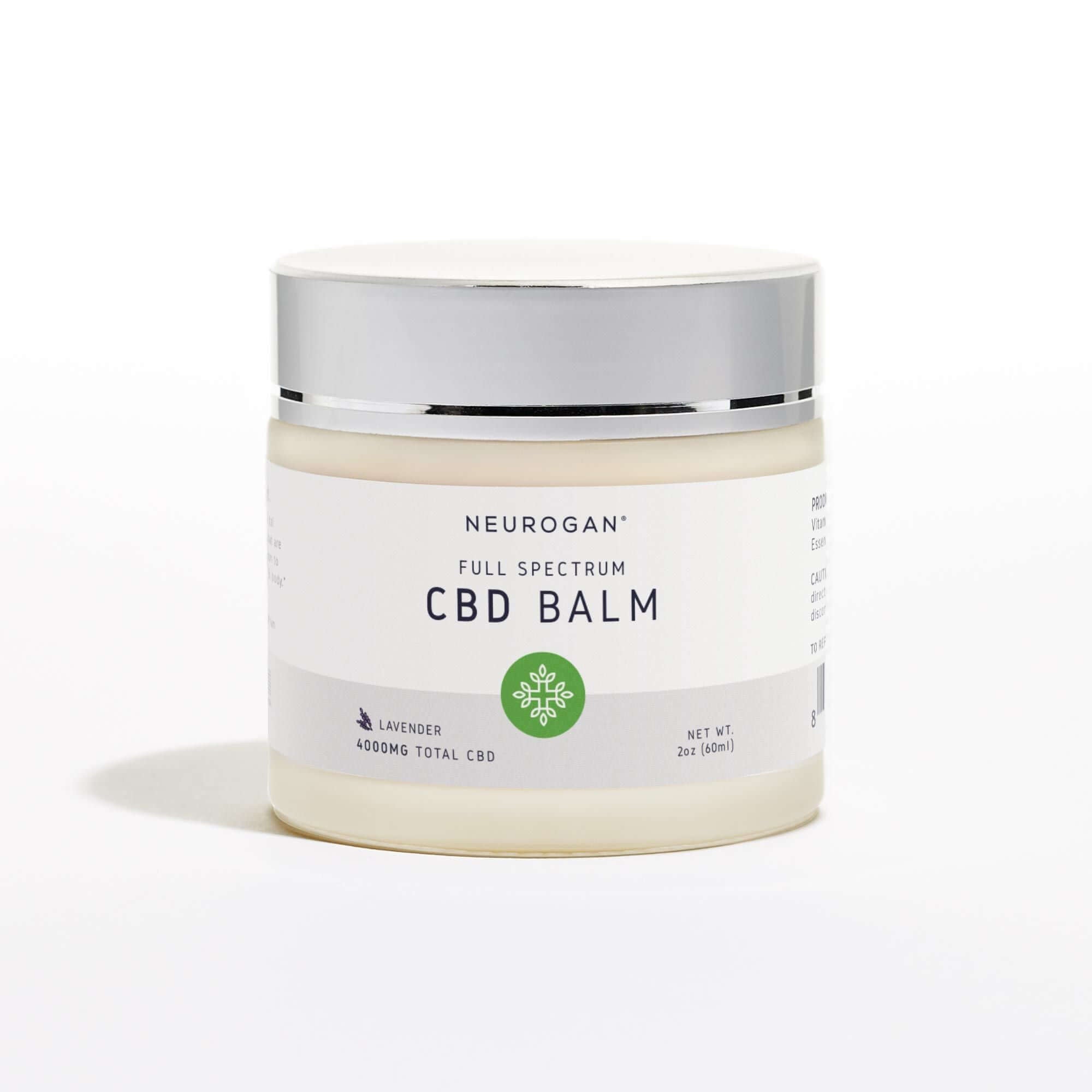Interested in trying out CBD but unsure what it is or how to use it? Don't worry—you're far from alone.
At Neurogan, we believe everyone should have access to safe, high-quality hemp products to enjoy all the excellent benefits of CBD. That's why our team has put together this comprehensive CBD beginner's guide just for you.
In this detailed article, we'll go over the basics of cannabidiol (CBD) and provide you with advice on how to shop for quality CBD products online along with 5 essential tips—like knowing the best time of day to take CBD oil and how often to take CBD oil—to help you get started.
By the end of it, you'll feel empowered and confident as you head down your journey with CBD.
So let's dive right in and take a closer look at the basics!
Primer Lesson: What Is CBD?
We can't exactly start a CBD beginner's guide without a crash course on what CBD is exactly, where it comes from, and how it works.
CBD stands for cannabidiol, a naturally occurring compound produced by the Cannabis Sativa plant. Unlike its famous counterpart, THC (tetrahydrocannabinol), CBD is non-psychoactive, which means CBD doesn't get you high.
It's become extremely popular in the last five years as a wellness booster for its wide-ranging benefits, from supporting mood, sleep, energy levels, and chronic pain while still being gentle on the body and physically non-addictive.
Where Does CBD Come From? Hemp Vs. Marijuana Plants
CBD and THC are chemical compounds called cannabinoids, which are produced in the resin glands of flowering cannabis plants.
CBD and other cannabinoids are harvested from plants using supercritical CO2 extraction or ethanol solvent to isolate the active plant compounds from the large plant material before its use in product formulations.
Hemp and marijuana are types of cannabis plants, but the differences lie in their growth patterns, cannabinoid concentrations, and legal status.
Generally, hemp plants contain high levels of CBD and low levels of THC (common ratios range from 2%-0.3% during harvesting). Conversely, marijuana plants contain higher levels of THC, often too high to be legally cultivated or sold in most states.
With the passing of the 2018 US Farm Bill, hemp-derived CBD products were allowed to be sold legally throughout the United States. This has initiated increased growth in both production and sales of industrial hemp and CBD gummies & general products, with many consumers leveraging the health benefits of hemp extracts.
While researchers have found medicinal and therapeutic effects of CBD and other cannabinoids found in marijuana, its status as a controlled substance, due to its psychoactive properties, makes it inaccessible in most parts of the world.
Currently, marijuana is only available in 11 states that have legalized recreational cannabis use or are available in select states through medical marijuana programs.
How Does CBD Oil Work?
Before we dive even deeper into the CBD beginner's guide, it's also important to know how it works in the body.
CBD is a versatile ingredient that can be taken orally, topically, and smoked to produce its effects.
To keep it brief, CBD oil interacts with the endocannabinoid system, which is a system of receptors, transmitters, and enzymes found in the body that helps regulate functions such as mood, memory, emotions, sleep, and other important processes.
CBD and other cannabinoids bind to receptors in this system. They can help to increase the levels of naturally produced endocannabinoids that act as messengers to maintain homeostasis throughout the body.
In addition to this direct interaction with the endocannabinoid system, CBD also has many other potential benefits.
For example, researchers found CBD has the potential as an antioxidant and anti-inflammatory compound to support the immune function and perception of pain [1, 2]. Many individuals dealing with chronic pain are exploring the potential benefits of CBD and THC for pain management.
Overall, it is clear that CBD and other cannabinoids offers a variety of potential benefits due to its complex yet powerful interactions with the human body.
Beginner's Guide on All CBD Products
More and more people are switching to CBD, investing in its extraordinary effects like increased energy levels, reduced stress levels, and relaxation.
Still, it can be overwhelming to understand what product to choose and the best time of day to take the CBD oil.
Let's discuss the different CBD product types for beginners as a guide for how to use them effectively.
CBD Oils
CBD oils also known as CBD tinctures are the most popular supplementation and offer the most versatility of use—but don't confuse this with hemp seed oil. Hemp seed oil comes from a different part of the plant (the seeds) and doesn't contain cannabinoids that offer CBD oil benefits.
CBD oil, available in tincture and CBD oral spray bottles is made up of hemp extract and carrier oil, such as hemp oil, coconut oil, or olive oil. They come in various potencies — or how much CBD extract is mixed in with the oil (labeled in MG) — and flavors.
All you have to do is select the CBD oil potency that closely matches your desired daily dose, measure out your portion, and apply the drops under your tongue for fast-acting effects or mix CBD into your food and drinks.
It may be tricky to determine how much or even how often to take CBD oil, but this comes with some time and experimentation.
When you're new to CBD, starting with lower doses (10-20 MG a day) and working your way up is the best way to get started—but stay tuned for more CBD beginner's guide tips.
CBD Capsules
CBD softgels & capsules are essentially CBD oil (hemp extract and carrier oil) packaged into softgel capsules for pre-measured doses of CBD that are easy to take on the go. Sometimes you can find dry capsules that include finely ground hemp or CBD isolate powder.
Capsules can eliminate the guesswork of figuring out how much to take, and they offer a solution for those who dislike the naturally bitter flavors of the hemp plant in CBD oil.
CBD capsules are very straightforward to use and make a great CBD option to guide beginners and experts alike. All you have to do is find a product that closely matches your dose and take them alongside a glass of water or your preferred beverage.
CBD Gummies
CBD gummies and other edibles, like mints and chocolate, are becoming very popular in the cannabis industry because they make getting therapeutic benefits of CBD gummies feel like a treat.
CBD gummies also come in a wide range of flavors and potencies and offer the same benefits as CBD oil and capsules but come in a much more palatable form. If you’re new to CBD and unsure about where to start, trying a free sample of CBD gummies can be a delightful and risk-free way to discover their benefits.
We recommend choosing a low-sugar CBD gummy made with natural ingredients so that you don't feel guilty about indulging in your CBD supplement.
CBD Topicals
CBD also has benefits when applied to the skin because there are cannabinoid receptors found in skin tissue.
As the largest organ, the skin plays a vital role in the immune response and pain sensation, and the endocannabinoid system helps to keep these functions in a healthy balance.
CBD topicals from skin care lines can help support the look and feel of healthy-looking skin, but you want to ensure that these products are made with natural compounds and non-pore-clogging ingredients.
Regarding muscle soreness and joint pain, CBD topicals can be a godsend as they can provide potent and targeted relief to problem areas.
To ensure you're getting the most from your CBD topical product, ensure it contains a high concentration of CBD. Massage it well into the skin for maximum absorption and to promote blood flow. You can keep your topical CBD with you on the go and re-apply it throughout the day when you need it. For a more convenient method of reapplying the product, consider trying a CBD roll-on for easy application.
CBD Smokables
Smoking the hemp plant in its natural state (CBD flower) is one of the oldest methods of leveraging the benefits of hemp, but for more gentle effects on the lungs, many people prefer vaping CBD oil concentrates.
CBD oil concentrates differ from oral CBD oils—vape CBD oil should not contain any carrier oils as it may irritate and damage the lungs.
The benefit of smoking CBD is that it delivers higher concentrations of the cannabinoid into your system very quickly for potent and fast-acting effects.
How to Pick High-Quality CBD Oil for Beginners
With so many CBD oil brands to choose from, it can be hard to determine whether you’re getting the highest quality product. A great way to start is to test out CBD with a free sample from a trust worthy brand, which allows you to test the quality and effectiveness of the product without a full commitment. This step is particularly valuable as you begin to understand the various offerings in the CBD market and find what best suits your needs.
Fortunately, several things differentiate high-quality CBD oil from its poor-quality counterpart.
Organic, Hemp-Derived CBD Oil
Quality CBD oil should come from organic hemp crops grown in the United States.
Taking notice of the source of your CBD oil can be a reliable indicator of its quality; poor farming practices or polluted soil can directly impact the safety and efficacy of cannabinoids produced by the hemp crop, so being familiar with the manufacturer is important.
Many companies provide origin information on their websites that list where their products were grown and processed, as a CBD guide for both beginners and experts. Reputable suppliers will certify their products as organic so you can feel assured that they are high-quality and safe to consume.
Full Spectrum CBD Oil
Another CBD beginner's tip in this guide is to look for full spectrum CBD oil instead of isolate CBD oil.
Full spectrum requires more precise and careful manufacturing than isolate does, as it involves preserving hemp cannabinoids that are stripped away when making CBD isolates.
In THC-free broad spectrum CBD and full spectrum CBD oil, there are dozens of minor cannabinoids and terpenes present in hemp to boost the effects of CBD in the endocannabinoid system.
Therefore, taking the time to look for full spectrum CBD products can go a long way in helping you find a high-quality product.
Read The Ingredients List
Take note of the ingredients list on the packaging. Quality CBD should contain no synthetics or added chemicals—each element should benefit the product itself.
Most importantly, ensure that full spectrum CBD is listed as one of the primary ingredients.
Ingredients are listed in order of concentration—if you can't find information about milligrams (MG) of CBD on the label or CBD isn't near the top of the ingredient list, then it likely won't be a very effective product.
Third-Party Lab Testing
Reputable vendors will also provide third-party testing results on their products that show cannabinoid potency, heavy metal levels, pesticides, and microbial and terpene profiles.
If third-party laboratory testing is unavailable, steer clear, as there is no assurance that the product is made with safe and pure ingredients.
Quality matters when deciding which products are formulated most effectively and safely. Always make sure you have full access to independent lab test results that verify a CBD manufacturer's product claims.
Brand Reputation
Before buying any CBD oil product, it is also important to look beyond the surface and examine other aspects, such as company reputation, customer service, and return policies.
Investing a little time in researching your purchase can ensure that you have an enjoyable experience with a product of high quality from a brand you can depend on.
5 CBD Tips to Get Started
With the different CBD products basics out of the way, let's highlight 5 key introductory tips all beginners should know when starting CBD.
From the best time of the day to take CBD oil to how often to take CBD oil, these are just some of the important considerations every CBD beginner needs to keep in mind.
1. The best time of the day to take CBD oil
Deciding when is the best time to take CBD oil can be especially important if you're taking it to help with specific health goals. In general, it's wise to take your CBD oil in the morning or at nighttime, before bedtime, especially if your goal is to improve your sleep habits.
Many experts recommend taking CBD oil with food to help with absorption into the gut. There are studies that support taking CBD in a fasted state isn't as effective as taking it alongside a light, high-fat meal [3].
Ultimately, those who are taking CBD oil as part of their treatment plan should consult with their healthcare provider regarding the most appropriate dosing schedule for them.
2. How often to take CBD oil
In addition to learning when is the best time of day to take CBD oil or other products, it’s important to be consistent when taking CBD. Your body needs to slowly adjust to the supplemented cannabinoids. Aim to take it at the same time every day and give yourself at least two weeks to allow for positive benefits to show.
During that time frame, you can change your dosage based on how you feel and how your body is responding. Overall, consistency is key when it comes to taking CBD for its health benefits.
3. How much CBD to take
When figuring out how often to take CBD oil and how much CBD to take, it is important to start with a smaller dose and gradually increase it over the course of several days until you experience desired effects. Generally speaking, people begin with 10-25 MG per day.
To maximize the beneficial effects of CBD, it may be useful to keep track of your daily dose and note any changes in your overall wellness. Doing so can help you find the optimal dosage for your individual needs.
4. Why CBD may work differently for everyone
Rather than taking one person's advice online and applying it to your life, it's important to keep in mind that your journey with CBD will take some experimentation.
Everyone reacts differently to CBD due to their body chemistry and lifestyle. Factors such as gender, age, experience with cannabinoids, metabolism, weight, fitness level and more can all affect how CBD affects an individual.
As such, it's important to not just rely on a single opinion but to rather experiment with CBD in order to find your own optimal dosage or product that works for you and your situation.
5. Trying different CBD Strengths for Beginners
Everyone is different and choosing the right CBD product depends on individual needs and how much their body can handle.
Taking into account your body chemistry, lifestyle, and symptoms, experimenting with different types of administration may help you determine what strong CBD product works best for you.
For instance, people suffering from muscle pain might find that taking high potency cbd gummies or topicals application could provide a more comprehensive relief than simply relying on one of them.
Many individuals experiencing dental discomfort are even turning to CBD tooth pain products to explore the potential benefits of CBD as a remedy.
With a wealth of options out there it is important to explore all possibilities in order to get the most out of your CBD experience.
The Takeaway: CBD for Newbies
The cannabis plant and CBD oil has many significant health benefits, including improved regulation of vital functions, balanced mental state, and accelerated regeneration. As an added bonus, CBD is a natural product that has a deep and ancient history of use from cultures spanning thousands of years.
When taking these advantages into consideration, it's no surprise so many are turning to CBD oil as a nutritional supplement to help kickstart their path to a healthier life.
As you explore the CBD landscape, it’s important to recognize that CBD can be derived either from the hemp or marijuana plants—both known to offer numerous therapeutic benefits but with differing legal standing.
While there’s still lots of research still needed around cannabinoids, studies have indicated that CBD can provide a range of potential medical applications, making it well worth your consideration when seeking relief.
And with a growing variety of ingestible products available on the market today—from oils and tinctures to edibles and beyond—there is something for everyone to introduce into their wellness routine.
Keep these key CBD beginner components—such as knowing what CBD is, the variations of products, the best time of day to take CBD oil, and how often to take CBD oil—in mind as a guide for your own personal CBD journey.
FAQ
What is full spectrum CBD?
Full spectrum CBD refers to a type of CBD oil that contains a wide range of naturally occurring hemp cannabinoids and terpenes, including THC. This type of CBD requires careful manufacturing to preserve these beneficial compounds, which can enhance the effects of CBD in the body's endocannabinoid system.
How long does CBD last?
The effects of CBD oil typically last between 2 to 8 hours, but individual experiences may vary depending on factors like genetics, lifestyle, and health conditions.
How many CBD gummies should I eat?
Determining the optimal dosage of CBD gummies depends on various factors, including your genetics, lifestyle, wellness objectives, and the potency of the CBD product. We suggest experimenting with dosages until you find the amount that produces the desired effects.
Does CBD oil go bad?
Yes, like all food products, CBD oil has a shelf life and typically expires between 12-18 months after bottling. While consuming expired CBD oil is not harmful, it may have an unpleasant taste and offer reduced benefits due to the degradation of the active compounds that interact with the endocannabinoid system. Over time, these compounds break down, resulting in a less potent CBD oil.
Resources:
- Borges, R. S., & Da Silva, A. B. F. (2017). Cannabidiol as an antioxidant. In Handbook of Cannabis and Related Pathologies (pp. e122-e130). Academic Press.
- Ruhaak, L. R., Felth, J., Karlsson, P. C., Rafter, J. J., Verpoorte, R., & Bohlin, L. (2011). Evaluation of the cyclooxygenase inhibiting effects of six major cannabinoids isolated from Cannabis sativa. Biological and Pharmaceutical Bulletin, 34(5), 774-778.
- Birnbaum, A. K., Karanam, A., Marino, S. E., Barkley, C. M., Remmel, R. P., Roslawski, M., ... & Leppik, I. E. (2019). Food effect on pharmacokinetics of cannabidiol oral capsules in adult patients with refractory epilepsy. Epilepsia, 60(8), 1586-1592.
Disclaimer:
The statements made regarding these products have not been evaluated by the Food and Drug Administration. These products are not intended to diagnose, treat, cure or prevent any disease. All information presented here is not meant as a substitute for or alternative to information from health care practitioners. Please consult your health care professional about potential interactions or other possible complications before using any product.









